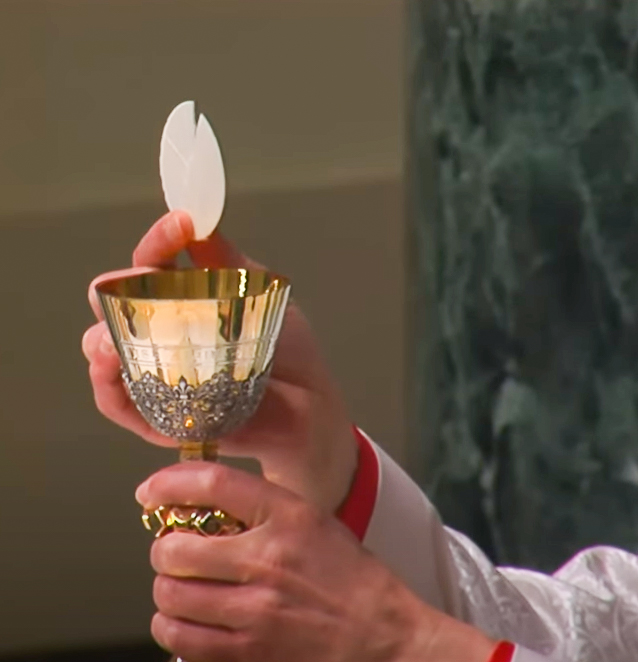
Q. Why can’t non-Catholics receive Holy Communion at Mass?
This is a common question about Church teaching regarding the Eucharist, and given that we remain in the midst of our National Eucharistic Revival, it’s a fitting time to explain the Church’s teaching on this difficult issue.
To begin, it’s helpful to recall the purpose of the Eucharist and what it both provides and symbolizes. Each of the seven sacraments is beneficial not solely for the person who receives it but for the entire Church as well. Because we are all mysteriously yet truly bound together because of our Baptism, the graces given to one also benefit the many. Therefore, for example, when a man and a woman marry one another, the graces given to them in the Sacrament of Holy Matrimony also benefit the other members of the Church. So, too, with the other sacraments.
What, then, is the purpose of the Eucharist? Why did Jesus institute this most holy sacrament, in which we receive him—Body, Blood, Soul and Divinity? Certainly for our own spiritual growth and wellbeing.
The Catechism of the Catholic Church spends several paragraphs explaining the benefits of Holy Communion for those who receive it (see paragraphs 1391-1401 in the catechism). But the Eucharist is also given to grow the unity of the Church, to solidify the bonds of unity which already exist among Catholics. And it is here that we approach an understanding of Holy Communion, which explains why it is generally reserved to Catholics.
In the act of receiving Holy Communion, we are symbolically saying we agree with and assent to all the Catholic Church teaches and holds. When we say “amen” when we are offered the Holy Eucharist, we are acknowledging that we believe everything taught by the Catholic Church. This is the reason why those who are not Catholic cannot receive Holy Communion: they obviously do not believe everything taught by the Catholic Church. Protestants, for example, reject what the Catholic Church teaches about the role of the pope. Yet, in receiving Holy Communion, we are saying that we agree with everything the Church teaches, including its teachings on the pope. Therefore, it would be contrary to the purpose of the sacrament for someone who isn’t Catholic to receive Holy Communion.
To be clear, then, agreeing with the Church’s teaching on Jesus’ real presence in the Eucharist isn’t sufficient to receive Holy Communion. I personally and many of our priests and parish leaders have been asked about this question by people who are not Catholic but believe in the Real Presence. As noted above, however, it’s not enough to believe in the Real Presence; one must assent to all of the Church’s teachings in order to receive Holy Communion.
This, of course, is a very emotionally charged issue, and it’s essential that we approach it not only with the truth but also with patience and charity.
Not only that, but this is one reason why the divisions present among Christians are so sad and why we must work to overcome them: those divisions prevent us from coming together in the reception of Holy Communion. The Eucharist is given to us to build up the unity of the Mystical Body of Jesus, his Church. The divisions in belief present among Christians, though, prevent all of us from coming together in order to receive this holy sacrament. Let us continue to pray, then, for unity among Christians.


